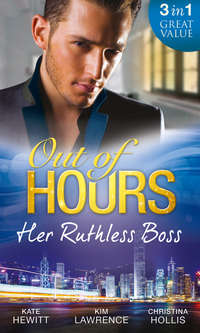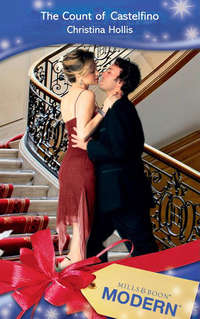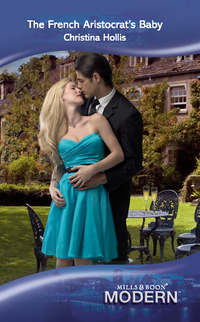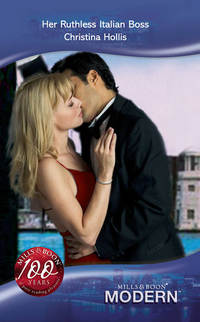
Полная версия
The Italians: Angelo, Rocco & Stefano: Wife in the Shadows / A Dangerous Infatuation / The Italian's Blushing Gardener


THE
Italians Angelo, Rocco & Stefano
Wife in the Shadows
Sara Craven
A Dangerous Infatuation
Chantelle Shaw
The Italian’s Blushing Gardener
Christina Hollis

www.millsandboon.co.uk
Table of Contents
Cover
Title Page
Wife in the Shadows
About the Author
CHAPTER ONE
CHAPTER TWO
CHAPTER THREE
CHAPTER FOUR
CHAPTER FIVE
CHAPTER SIX
CHAPTER SEVEN
CHAPTER EIGHT
CHAPTER NINE
CHAPTER TEN
CHAPTER ELEVEN
CHAPTER TWELVE
CHAPTER THIRTEEN
A Dangerous Infatuation
About the Author
CHAPTER ONE
CHAPTER TWO
CHAPTER THREE
CHAPTER FOUR
CHAPTER FIVE
CHAPTER SIX
CHAPTER SEVEN
CHAPTER EIGHT
CHAPTER NINE
CHAPTER TEN
The Italian’s Blushing Gardener
About the Author
Chapter One
Chapter Two
Chapter Three
Chapter Four
Chapter Five
Chapter Six
Chapter Seven
Chapter Eight
Chapter Nine
Chapter Ten
Chapter Eleven
Endpage
Copyright
SARA CRAVEN was born in South Devon and grew up in a house full of books. She worked as a local journalist, covering everything from flower shows to murders, and started writing for Mills & Boon in 1975. When not writing, she enjoys films, music, theatre, cooking and eating in good restaurants. She now lives near her family in Warwickshire. Sara has appeared as a contestant on the former Channel Four game show Fifteen to One and in 1997 was the UK television Mastermind champion. In 2005 she was a member of the Romantic Novelists’ team on University Challenge—the Professionals.
CHAPTER ONE
April
THE EAR-RINGS WERE the most exquisite she had ever seen.
Nestling in their bed of black velvet, the single diamond drops glowed with a fierce inner fire that made her wonder if her fingertips would burn as she touched them.
But, in fact, they were cold, she thought with a small ironic smile as she fastened them into her earlobes.
Cold as the rest of the jewellery she had been given over the last endless months.
Cold as the chill in the pit of her stomach when she envisaged the evening ahead of her. And its possible aftermath.
She took the pendant, which had been the previous gift, from its case, and handed it to Donata, her maid, to fasten round her throat.
Then she rose from her dressing table, walked to the full-length mirror on an adjacent wall, and stood, straight and silent, subjecting her reflection to a critical, almost clinical examination.
The prescribed outfit for the evening was black, a simple full-length column of silk jersey, long-sleeved, and gathered in soft folds under the bust, its deep neckline revealing the first swell of her breasts, as well as setting off the pendant.
The dress was not in a colour or a style she particularly cared for. It made her look older than her twenty three years, she thought objectively. Conveyed a sophistication she certainly did not possess. But, like so much else in life, it was not her choice.
And, anyway, she asked herself with irony, when had a puppet ever picked its own costume?
Her hair had been swept up into an artfully arranged topknot, with just a few careless strands allowed to brush her cheeks and the nape of her neck.
She had never really warmed to Donata—the girl was too closely involved in the hollow sham that was her life, and probably saw altogether too much, she thought bitterly—but she could not fault her talent for hairdressing. Or, it seemed, her discretion. Whatever she might think of her employer’s marriage, she appeared to keep it to herself.
She had learned to apply her own cosmetics. Practised with shadow, liner and mascara to make the most of the grey-green eyes that were her one real claim to beauty, so that they gleamed almost mysteriously under their fringe of heavily darkened lashes.
Her mouth wore the warm flush of a wild rose, and the same shade was echoed in the polish that enhanced her manicured nails.
And in her ears and at her throat, the diamonds glittered like ice in winter sunlight.
She heard a warning cough from Donata, and saw her glance significantly at her watch.
Time, it seemed, for another performance to begin. Reaching for her evening purse, she walked to the door and out along the gallery to the head of the stairs, hearing from the opposite direction the sound of another door closing.
She paused, as always, watching him walk towards her, tall and lean in the elegance of his evening clothes, and moving as lithely as a panther, as if hinting that the formality of his appearance might only be a façade.
And he halted too, his dark gaze sweeping her in one unhurried, comprehensive assessment.
He gave a swift curt nod indicating that her appearance at least had won his approval, then they began to descend the stairs, side by side, but far enough apart to ensure that not so much as his sleeve would brush her arm.
Then, as they reached the marble floored hall below, she was aware of him turning towards her. She heard his voice say quietly, ‘Tonight,’ and felt the word shiver across her senses until it became dread.
June the previous year
He had, of course, been ambushed. He realised it as soon as he entered the salotto and saw that his grandmother was not as he’d hoped, waiting to receive him alone. Instead, her daughter, Signora Luccino, her plump face set in disapproving lines, was seated beside the Contessa Manzini.
‘Dearest Nonna.’ He went gracefully to his grandmother’s chair, and kissed her slender fingers. ‘And Zia Dorotea.’ He acknowledged his aunt’s presence with a polite inclination of the head that was not quite a bow. ‘What a pleasant surprise.’
Well, at least in one respect he was telling the truth, he thought drily. He had certainly not expected to come face to face with his late father’s older and least favourite sister, the imposing matriarch who ruled her large family as an absolute despot. But he doubted very much if either of them would derive much pleasure from the encounter.
‘Caro Angelo.’ Cosima Manzini indicated that he should take the sofa opposite. ‘You are looking well, dearest.’
He thought he heard his aunt give a quiet snort, but continued to smile pleasantly.
‘Thank you, I am in the best of health. Probably more by good fortune than good judgement as I am sure Zia Dorotea wishes to remark.’
‘I do not think that riding in a private horse race, when you were still recovering from the shoulder you dislocated in a polo match shows any kind of judgement, my dear Angelo,’ said the Signora.
Angelo’s smile widened. ‘But I had been heavily backed to win—not least by yourself, zia, or so my cousin Mauro tells me,’ he pointed out softly. ‘It would have been most discourteous to let people down, so I did not do so.’
The expression on the Signora’s face said plainly that Mauro would suffer for his indiscretion.
‘You took a great risk, caro,’ his grandmother added, her arched brows drawing together.
‘A calculated one, Nonna.’
‘Tuttavia, Angelo mio, there is a matter you must now seriously consider.’
His mouth tightened. ‘You are again referring, I presume, to marriage.’
‘Dear one, I must do.’ Cosima leaned forward, her eyes pleading. ‘I have no wish to interfere, or to make you angry, but it is over two years since your beloved father died, and you became Count Manzini. You need a son and heir to inherit the title in his turn.’
He said bleakly, ‘I am aware of my obligations, Nonna. None better, I assure you. But I do not find them particularly appealing.’
‘No,’ said his aunt. ‘You prefer to trifle with other men’s wives rather than find one for yourself. Oh, do not defend him, Mamma,’ she added sharply as the Contessa tried to speak. ‘It is the truth and Angelo knows it. There are plenty of single girls for him to choose from, but until he stops behaving like a tomcat all over Rome, he will never find a bride.’
He said between his teeth, ‘How good of you to take such an interest in my private life, Zia Dorotea.’
‘If only it were private,’ she retorted. ‘But I fear that it is only a matter of time before one of your liaisons becomes a public scandal. And I tell you, Angelo, you will have no-one to blame but yourself if the Galantana brand suffers as a result.’
‘We make clothing for the fashion industry, zia,’ he returned coldly. ‘Not church vestments. I hardly think any stories about me as the chairman of the company will affect whether a girl buys a skirt with our label on it or another’s.’ He shrugged. ‘It might even boost sales. Who knows?’
‘Oh, you are impossible.’ She reached for her bag and rose. ‘I have not the patience to reason with you.’
‘As I am fast running out of patience to listen to you,’ Angelo said crisply. ‘Busy yourself with finding a wife for Mauro. That should occupy you for the next several years.’
She gave him a look of concentrated fury and swept to the door. When it had closed behind her, the Contessa said mildly, ‘That was neither kind nor polite, mio caro.’
‘Yet it had the ring of truth she allegedly admires so much. However, I will send her some flowers and make peace.’ He was silent for a moment, then sighed irritably. ‘She did not come here today, I am sure, just to lecture me on my sins. No doubt she has a suitable candidate in mind as a wife for me.’
‘Davvero, she mentioned—someone.’
Angelo’s face relaxed into faint amusement. ‘But of course,’ he said softly. ‘And are you going to tell me her name?’
‘She is called Elena—Helen in her own language.’
‘An English girl?’ He didn’t hide his surprise.
‘With Italian blood,’ the Contessa nodded. ‘Her grandmother Vittoria Silvestre was a dear friend of mine and Dorotea also had affection for her. She married an Englishman, and one of her daughters did the same, a man called Blake. They eventually settled near Genoa, but sadly were killed one winter in an accident on the autostrada. Elena, their only child, now lives in Rome, and works as a translator for the Avortino publishing company.’
‘She works?’ His brows lifted. ‘So she is “not just a pretty face” as the English say.’
‘You would be a better judge of that than myself.’ The Contessa played with her rings. ‘It seems you have met her.’
‘I have?’ Angelo frowned. ‘I do not recall.’
She said expressionlessly, ‘She was at a dinner party you attended at the house of Silvia Alberoni.’ She paused. ‘A name that is familiar to you, I think. And certainly a pretty face.’
Under his breath, Angelo cursed his Aunt Dorotea, wondering at the same time how she came by her information.
I shall have to be more careful in future, he thought grimly.
Married to the wealthy but dull head of a firm of top accountants, Silvia was as bored as she was young and beautiful, and also ripe for mischief as he’d swiftly detected at their first meeting. Subsequent and more private encounters had proved her just as ardent and inventive as he’d conjectured, and their affaire had prospered.
Until then, he had also believed it to be a secret, which was why he’d risked accepting her invitation to dinner. Most of the other guests had been from the world of finance, so he had found the evening instructive as well as entertaining, but he seemed to remember there had been a girl, quiet and essentially nondescript, seated at the other end of the table. The fact that he’d barely noticed her, he thought, said it all.
He said coolly, ‘It is kind of my aunt to bring her to my attention, but I believe I require at least a modicum of personality in the woman I marry. Signora Alberoni’s guest seemed—a complete nonentity—a girl without looks or significance.’
‘I am sorry to hear it,’ his grandmother said after a pause. ‘I would not have thought Vittoria’s grand-daughter could be so signally lacking in appeal. But any decision must naturally be yours—when you choose to make it.’ She paused. ‘Now ring the bell, mio caro, and Maria will bring coffee.’
And the conversation, to Angelo’s relief, turned to other topics.
But that did not mean he was off the hook, he thought, as he drove home later. And in many ways his grandmother and interfering aunt were right. He should be married, and if this might be possible to achieve without having to abandon his bachelor pleasures, he would propose to the first suitable girl who took his eye.
But the experiences of some of his married friends whose submissive doe-eyed brides had turned into control freaks before the honeymoon was over had proved an active deterrent. True, they seemed more philosophical than crushed, but Angelo knew it would not do for him.
But, at the same time, he could not envisage what he might find acceptable either.
He enjoyed women, and the pleasure of women, always making sure that he gave back the delight that he took, but he had never fallen in love with any of the girls who’d shared his bed, or considered that they might also share his future on a long-term basis.
He offered no promises and made it clear he expected none in return.
In addition, there was a kind of inner reserve in him which seemed to warn him when each liaison had run its natural course, and could be safely ended, with charm, generosity—and finality.
And he suspected with a trace of regret that his affaire with Silvia Alberoni might already be reaching those limits.
She was a passionate and insatiable mistress, but that reliable antenna of his had recently picked up that she might have begun to foresee a different role in his life for herself, if the worthy Ernesto could be conveniently sidelined.
The word ‘annulment’ had even been mentioned, lightly and amusingly, it was true, and solely in the context of her failure to become pregnant during the two and a half years of her marriage.
‘I was told once that a woman’s body can reject the seed of a man she does not truly love.’ One crimson-tipped finger had drawn an enticing pattern in the curling dark hair on his chest. ‘Do you think that is true, mi amore?’
He had curbed his instinct to dismiss the idea as ludicrous nonsense but in much pithier terms, and, instead, murmured some meaningless platitude about a woman’s sensitivity which appeared to satisfy her. But the exchange had raised a red flag in his consciousness just the same. As did her use of the word ‘love’ which he’d always deliberately avoided in his affaires.
But even more alarming was the possibility that rumours might be circulating about them. That if Zia Dorotea had learned of their relationship, then others might also have done so, and that the stories might eventually reach Ernesto Alberoni.
Angelo would deny them, of course, but he had to ask himself if Silvia could be trusted to do the same, or if she might see this as an opportunity to escape from a disappointing marriage, and find a husband more to her taste. And there was a real danger she might want it to be him. Could insist that having destroyed her marriage, he had an obligation towards her. Had even once expressed disappointment that she had not met him while she was still ‘free’. Another word to set alarm bells ringing.
Because Silvia, though beautiful and entertaining, was hardly the material from which good wives were made. After all, she’d had no compunction about putting horns on the unfortunate Ernesto, and who was to say she would not do the same to another husband, given the opportunity?
Suddenly he could see the precipice yawning in front of him and knew that, for safety’s sake, he needed to step back, and fast, while he still could.
For there was another reason why any kind of open scandal should be avoided, particularly at this moment. The quality of the Galantana brand of clothing had saved the company from the worst effects of the global recession—indeed, they were planning expansion—but for that they needed extra finance for more new machinery at the Milan factory, as well as buying another site for workshops near Verona.
Which was principally why he had accepted Silvia’s dinner invitation, because he’d learned that Prince Cesare Damiano, head of the Credito Europa bank would be present, and not because he liked to live dangerously.
He and Prince Damiano had spoken briefly but constructively, and negotiations were now proceeding. And while the banker was a charming, cultivated man with a passion for rose growing, he was also known to be a stickler for old-fashioned morality.
Any overt lapse on Angelo’s part could well blow the deal out of the water, and delay would be costly in all kinds of ways.
So a period of celibacy was indicated. Irritating, he decided cynically, but a necessity. As, it now seemed, was his marriage, which would provide a safeguard as well as an expedient.
He drove into the security parking of his apartment block, and rode the lift up to the top floor. As he stepped through his front door, his manservant, Salvatore, was waiting to take his briefcase and discarded jacket.
‘There have been two phone calls for Your Excellency,’ he announced, lowering his eyes discreetly. ‘Also a note has been delivered.’ He paused. ‘Will your signoria be dining out this evening?’
‘No,’ Angelo returned, looking moodily at the unmistakable pale mauve envelope on the hall table. ‘I shall eat here. Something light, Salvatore. I am not very hungry.’
The other’s eyes lit up. ‘I have some good veal—which I will cook in a little Marsala, perhaps?’
‘With a green salad,’ Angelo agreed. He ran a weary hand round the nape of his neck. ‘In the meantime, I think I’ll take a sauna. Get rid of some of the kinks of the day.’
In his bedroom, he stripped then walked into the bathroom, grabbing a towel on the way, to the wooden cabin that opened off it. He poured a dipper of water scented with aromatic herbs on to the coals and, spreading his towel on the slatted wooden bench, stretched out, closed his eyes and let his mind drift.
If he was going to marry, he mused, there were a number of practical matters to take into consideration, the most urgent being living accommodation, because, convenient as it was to the Via Veneto and the Rome headquarters of Galantana, this apartment was also his bachelor pad, and due to its past associations, not a suitable place to bring his bride, although he had no intention of getting rid of it.
No, he thought, she would be far happier living on his estate in the hills just outside the capital, and it would be a better environment for the son he hoped for. Or it would be once the air of melancholy following the loss of his mother, which had dulled his own memories of a happy childhood and caused him to avoid the place in recent years, had been banished forever.
His father, turned by grief into a virtual recluse, had suddenly and quite unexpectedly begun a refurbishment programme on the villa itself three years before. It had gone into abeyance on his death, but the time had come, Angelo decided, for it to be revived and completed.
It was odd, he admitted to himself, to be making plans for a woman he didn’t even know as yet, but, as the Contessa Manzini, she would soon learn the duties and responsibilities of her new status and, he hoped, the pleasures of it too as he had every intention of being both generous and considerate.
She might not have his love, the sweet and passionate emotion that had held his parents steadfastly in thrall to each other, because he doubted whether he was capable of such feelings, but he could and would offer her, at the very least, respect along with every material comfort she could wish for. And a decent show of ardour should not be too difficult to feign. Besides, if she was pretty enough, he might not have to pretend, he told himself, grimacing inwardly.
He’d stayed with friends in Tuscany the previous weekend, and partnered a girl called Lucia in an impromptu tennis match. Good legs, he thought judiciously, a figure that curved in all the right places, and dark eyes that had gleamed in his direction more than once. He had not asked for her telephone number but that was an omission that could easily be rectified with an email to his host.
On the other hand, each time she’d played a bad shot, she’d giggled and he’d begun to find this irritating. The thought of having to listen to it morning, noon and even night was not appealing.
He sat up abruptly, cursing under his breath. He was hardly perfect husband material, so why should he expect to find the perfect wife? And what made him think Lucia would even want him?
For once, and perhaps understandably, he was finding relaxation difficult, so he abandoned the sauna, showered briskly, pulled on jeans and a polo shirt and went to the salotto.
As he’d anticipated, both phone messages were from Silvia, requesting him to call her. And her letter proved to be in similar vein but rather more demanding, he noted, his lips tightening. Clearly his absence in Tuscany and his omission to contact her immediately on his return had not pleased her. She was becoming distinctly proprietorial, and although he would have his regrets at terminating their association, he realised he had no choice.
He did not belong to her, he thought coldly, pouring himself a whisky. To her, or any other woman, and he never would. He had seen what that could do. Had seen his father become a silent stranger, the heart and spirit torn out of him after his wife’s death—little more than a sad ghost in a house which had once been filled with sunshine and laughter.
Had found himself, scarcely out of boyhood, excluded from his own grief in the face of his father’s desolation.
And without the tenderness and support of Nonna Cosima, who had taken him into her own home, he would have been left very much alone.
As he emerged from the darkness of that time, he’d sworn that he would never allow anyone to make him suffer like that. And nothing had happened since to persuade him to change his mind.
His marriage would be a practical arrangement without illusions, he vowed silently, and he would set himself to make it work.
Therefore, as a beginning, he would decline Silvia’s suggestion that as Ernesto would be away the following weekend, they should take advantage of his absence at some discreet albergo in the wilds of Umbria or Reggio Calabria.








